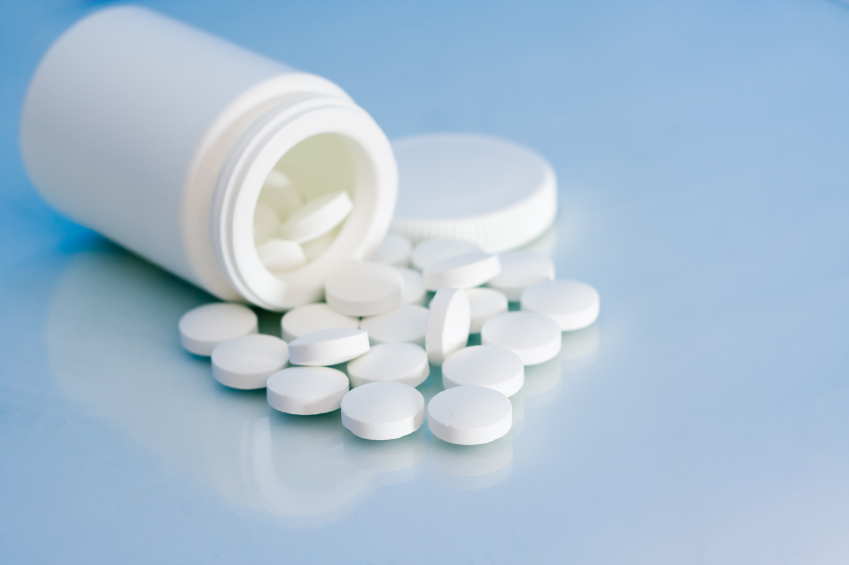Caffeine One of Several Compounds That May Protect Against Dementia
A 2017 article by Yousuf O. Ali and colleagues in the journal Scientific Reports finds that 24 different compounds may boost a brain enzyme that protects against dementia. The enzyme, NMNAT2, protects neurons from stress and combats misfolded proteins called tau that form plaques in the brain as people age.
Ali and colleagues screened 1280 compounds to identify those that might increase NMNAT2 production. Twenty-four of these looked promising, including caffeine and rolipram, an “orphaned drug” once studied as an antidepressant but discontinued in the 1990s. Others with weaker effects on NMNAT2 production included the atypical antipsychotic ziprasidone, cantharidin (a wart-removing substance secreted by blister beetles), fungal metabolite wortmannin, and retinoic acid, a vitamin A derivative. Thirteen of the compounds tested decreased NMNAT2 production.
The researchers followed up the caffeine finding by testing caffeine in mice genetically engineered to produce less NMNAT2. The caffeine administration normalized NMNAT2 production levels in these mice.
Senior researcher Hui-Chen Lu hopes this research will lead to the development of new drugs that can create a chemical blockade against the effects of neurodegenerative illnesses.
Perinatal Choline Supplements May Reduce Risk of Schizophrenia
 Many psychiatric illnesses, including bipolar disorder, schizophrenia, autism, attention deficit hyperactivity disorder (ADHD), and anxiety disorders may stem from abnormalities in brain development that begin before birth. Researchers are trying to determine whether dietary supplements taken by pregnant mothers or infants can reduce the risk of such illnesses. At a recent scientific meeting, researcher Randal Ross and colleagues reported that compared to placebo, choline supplements reduced problems with a brain process called sensory gating in one-month-old infants and also improved the children’s attention span and social skills at age 3.
Many psychiatric illnesses, including bipolar disorder, schizophrenia, autism, attention deficit hyperactivity disorder (ADHD), and anxiety disorders may stem from abnormalities in brain development that begin before birth. Researchers are trying to determine whether dietary supplements taken by pregnant mothers or infants can reduce the risk of such illnesses. At a recent scientific meeting, researcher Randal Ross and colleagues reported that compared to placebo, choline supplements reduced problems with a brain process called sensory gating in one-month-old infants and also improved the children’s attention span and social skills at age 3.
Sensory gating is the process by which the brain filters out unimportant information, to avoid flooding higher cortical centers with irrelevant stimuli. Deficits in the way the brain inhibits response to this type of irrelevant information are associated with mental illnesses such as schizophrenia.
In Ross’s study, healthy pregnant mothers received either a placebo or 6300 mg of choline, a nutrient found in liver, egg yolks, and meat. After delivery, the infants also received 700 mg of supplemental choline per day. In children who carried CHRNA7, a risk gene for schizophrenia discovered by Ross’s colleague Robert Freedman, choline reversed the associated risk of sensory gating problems and normalized their behavior at age 3.
Family-Based Health Program Successful in Vermont
A statewide program to promote healthy behaviors within families has been successful in Vermont. The approach, described by researcher James J. Hudziak at the 2015 meeting of the American Academy of Child and Adolescent Psychiatry, is based on three assumptions. The first is that emotional and behavioral health is the cornerstone of all health. The second is that health behaviors are formed and sustained within families. The third is that promoting healthy behaviors, preventing illness, and intervening for better health outcomes are all important to enhancing the health of the population.
Vermont used community outreach (including town-hall public events), the media (including Twitter, blogs, radio, television, public service announcements, and a short film), and group trainings of community professionals to successfully spread health messages to families. The program targeted pediatricians’ offices, schools, community mental health centers, federally qualified health centers, and Departments of Health, Mental Health, and Child Welfare.
Hudziak has also suggested that programs of exercise, music, and mindfulness (all of which enhance brain growth and development) should be made universally available to children in school.
Cognitive Behavioral Prevention Program Can Reduce Incidence of Depression Among Teens
Adolescents whose parents have a history of depression are at greater risk for depression themselves. A new study suggests that a cognitive-behavioral prevention program aimed at these teens can reduce depression rates compared to the usual care.
The study, by David A. Brent and colleagues in the journal JAMA Psychiatry, included 316 participants aged 13–17, each of whom had a parent with a current or prior depression. Half of the participants participated in the cognitive-behavioral prevention program in addition to usual care initiated by their families. The program consisted of 8 weeks of 90-minute group sessions focused on developing positive thinking habits and improving problem solving, followed by six monthly sessions. The training was based on the Adolescents Coping with Depression program described in a June 2009 JAMA article by Garber et al.
The group who participated in the prevention program had a lower incidence of depression than the group who received only the usual care, and this difference persisted over six years of followup. Most of this effect was due to a reduced incidence of depression in the first nine months following the intervention. (Depression was roughly equal among the two groups at two later followups.)
Importantly, the benefit of the prevention program was only seen among adolescents whose parents were not depressed at the time of enrollment in the study, underscoring the importance of treating parents in order to keep the whole family healthy.
Benefits of the prevention program included reductions in onset of depression and days depressed, and improvement in interpersonal and academic competence.
Brent and colleagues say that the study shows that it is possible to prevent depression, and this can have long-term developmental consequences. They encourage focusing on the entire family’s mental health treatment.
While the main benefits came early, Brent suggests that booster sessions for teens who begin to show symptoms of depression might refresh the benefits of the prevention program at a later time.
Editor’s Note: This study has enormous health implications as depression in adolescents tends to recur and is associated with a more difficult course than depression beginning in adulthood. Preventing depressions would theoretically have positive consequences for both psychiatric and physical health, as depression is associated with increased risk of suicide and decreased longevity from increases in cardiovascular disease. Researcher Joan Luby recently reported that children with prepubescent onset of depression have decreased hippocampal volume in adolescence, so it is possible that preventing depression may have positive implications for brain volume and function.
Omega-3 Fatty Acids Prevent Conversion to Psychosis
 A new long-term study of omega-3 polyunsaturated fatty acids for psychosis prevention shows that almost seven years after a 3-month stint of receiving these dietary supplements daily, adolescents and young adults at high risk for psychosis showed fewer symptoms of conversion to full-blown psychosis than those who received placebo during the same period.
A new long-term study of omega-3 polyunsaturated fatty acids for psychosis prevention shows that almost seven years after a 3-month stint of receiving these dietary supplements daily, adolescents and young adults at high risk for psychosis showed fewer symptoms of conversion to full-blown psychosis than those who received placebo during the same period.
The research team, led by Paul Amminger, originally found that among 81 youth (mean age 16.5) at high risk of developing psychosis due to their family histories, the 41 who received 12 weeks of daily supplementation with 700mg of eicosapentaenoic acid (EPA) omega-3s and 480 mg of docosahexaenoic acid (DHA) omega-3s showed reduced likelihood of conversion to psychosis one year later than the 40 who received placebo.
The team followed up an average of 6.7 years later with 71 of the original 81 participants. Among those who had received the omega-3 intervention, 9.8% had developed psychosis. Among the placebo group, 40% had developed psychosis, and they had done so earlier.
In addition, the omega-3 participants were better functioning, they had required less antipsychotic medication, and they had lower rates of any psychiatric disorder than the placebo group.
Amminger wrote in the journal Nature Communications, “Unlike antipsychotics, fish oil tablets have no side effects and arent’s stigmatizing to patients.”
Editor’s Note: Because of their lack of side effects, a good case can be made for omega-3 fatty acids for patients at high risk for psychosis. The novel thing about this study is that short-term treatment with omega-3 fatty acids had preventive effects almost 7 years later.
More Evidence That Lithium Prevents Mania and Depressions
There is a large body of research showing that lithium is better than placebo and a variety of comparison drugs at preventing manic episodes in people with bipolar disorder. It has been less clear whether lithium is as effective in preventing depressions in bipolar patients. In a 2014 meta-analysis in the International Journal of Bipolar Disorders, Emanuel Severus and colleagues confirmed that lithium was more effective than placebo at preventing mood episodes overall and manic episodes. In a fixed effect statistical analysis, lithium was also better at preventing depressive episodes.
The portion of the meta-analysis comparing lithium to placebo included seven randomized controlled trials that included a total of 1,580 patients. Lithium was more likely than placebo to lead to patients dropping out of a study for reasons other than a mood episode, but patients who received lithium were more likely to complete their clinical trials.
Another part of the meta-analysis compared lithium to anticonvulsant drugs. Seven trials were included totaling 1,305 patients. Lithium was better than anticonvulsants at preventing manic episodes, but equally effective at preventing mood episodes overall and depressive episodes specifically. There was also no difference in patients dropping out of the trials or completing the trials.
The researchers concluded that lithium remains the most valuable treatment option for bipolar disorder, because no other drug has such consistent efficacy in preventing manias and depressions and mood episodes in general.
Folate Supplementation May Delay Onset of Depression in Those at High Risk
Low levels of folate, also known as folic acid or vitamin B9, have been associated with depressive symptoms in the general population. A 2014 article by A.L. Sharpley et al. in the Journal of Affective Disorders explored whether folate has protective effects. Teens and young adults (ages 14–24) at high risk for mood disorders due to a family history of these illnesses were randomly assigned to receive either folate supplements (2.5 mg daily) or placebo for up to three months. While there were no significant differences in the percentage of young people in each group who went on to be diagnosed with a mood disorder, in the folate group there was a delayed onset of illness in those who went on to become unwell.
Specialized Bipolar Treatment Superior to Treatment as Usual: A Randomized Controlled Study
Danish researcher Lars Kessing recently performed the first randomized controlled study of the efficacy of early intervention in bipolar disorder.
Patients who had been hospitalized for a first episode of mania were randomly assigned to two years of treatment in a specialized clinic versus two years with treatment as usual in the community (the control condition). The researchers predicted that then specialized clinic would decrease subsequent hospitalizations, and increase adherence to medication and patient satisfaction compared to treatment as usual over the subsequent six years.
Treatment at the special clinic began with a phase of post-hospitalization settling in, followed by psychoeducation (15 weeks of 1 session/week). Emphasis was placed on the recognition of breakthrough symptoms—early warning signals of an impending mood episode.
All three outcomes were better in the group who were treated at the specialized clinic than in control group who received treatment as usual. Hospitalizations were reduced 40%, medication compliance was enhanced, and patients were more satisfied. Patients younger than age 36 showed greater improvement and greater differences from the control group than were seen among older patients.
One striking observation was that the difference observed after patients had spent two years in the specialized clinic compared to the control group persisted and grew over the following four years, even though these patients left the specialized clinic after the first two years.
The specialized clinic was not only successful, but was also cost-effective. Clinic patient care led to a savings of €3,194 per patient. The costs for clinic patients were 11% of those for control patients.
Editor’s Note: We already know that treatment delay is related to poor outcome. (See article by this editor Robert Post et al. in the Journal of Clinical Psychiatry in 2010.) This study is groundbreaking in demonstrating that the quality of care in a specialized clinic has enormous personal, societal, and financial benefits, and can render the course of illness more benign over a sustained period of at least 6 years.
This means that a revolution in the care and treatment of patients with bipolar disorder is needed throughout the world, but especially in the US, where the typical treatment paradigm is as bad or worse than the treatment as usual condition in Kessing’s Danish study. When patients are discharged from the hospital, they are immediately at increased risk for relapses and, most alarmingly, at 200-fold increased risk of suicide. This post-hospitalization gap in treatment between episodes needs to be better managed. Transitional care is rarely handled well, psychoeducation is rarely given for a sufficient duration, therapy is often unavailable, and medication non-compliance is high. These factors lead to increased illness, re-hospitalizations, and skyrocketing personal and societal costs. Moreover, only 20% of bipolar patients identified in epidemiological studies in the US are in any kind of treatment.
Treatment guidelines must be changed to better address these issues. A first episode of mania should trigger a cascade of sequential treatments: Read more







